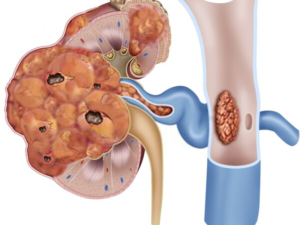Nephrectomy
Nephrectomy In Iran
Best nephrectomy hospital in Iran
 More than 2500 Iranian and foreign patients are going under nephrectomy hospital in Iran each year. nephrectomy in Iran is on top of the middle-east regarding its skilled specialists and surgeons.
More than 2500 Iranian and foreign patients are going under nephrectomy hospital in Iran each year. nephrectomy in Iran is on top of the middle-east regarding its skilled specialists and surgeons.
- Treata Professional Hospital
- Gandi Hospital
- Moheb Mehr Hospital
Nephrectomy cost in Iran
There is a significant difference between the cost of nephrectomy in Iran and other countries. The most important factors for the low price of it in Iran are:
- A large number of nephrectomy hospitals in Iran.
- A large number of applicants for nephrectomy in Iran.
Nephrectomy cost in Iran varies depending on the nephrectomy and the hospital. An average cost of nephrectomy in Iran is $4000.
Nephrectomy cost in Iran in comparison with other countries
This surgery costs $20000 in the U.S., $17000 in Europe, $15000 in Thailand and $14000 in Turkey.
Best nephrectomy surgeon in Iran
More than 24.000 urology surgeries are being performed each year in Iran. Experienced Iranian doctors with an excellent record are performing the operations.
One of the most important factors for choosing a good surgeon for nephrectomy in Iran is a doctor has done many nephrectomies. You can find the best doctors for nephrectomy in Iran on our website by following their experiences.
Why should you travel to Iran for a nephrectomy?
Many patients travel to Iran for nephrectomy. One of the reasons for this matter is Iranian specialists and surgeons who have high surgery success rates.
- Low cost of nephrectomy in Iran
- Low cost of accommodation in Iran
- Well experienced doctors
- The high number of nephrectomy in Iran
Nephrectomy centres accordant with today's European standards are performing the highest quality operations in Iran. Another reason for nephrectomy in Iran is its lower cost compared to other countries.
How long should I stay for nephrectomy in Iran?
About Nephrectomy
 Our kidneys filter wastes and excess fluid and electrolytes from the blood, produce urine, Maintain proper levels of minerals in the bloodstream and produce hormones that help regulate the blood pressure. Kidney cancer is a medical condition in which kidney cells become malignant and grow out of control. One of the most responsive treatments for malignant kidney tumours is nephrectomy. Most often, a nephrectomy is performed to treat kidney cancer or to remove a noncancerous (benign) tumour. In some cases, a nephrectomy is performed to deal with a diseased or seriously damaged kidney. In the case of a donor nephrectomy, the urologic surgeon removes a healthy kidney from a donor for transplant into a person who needs a functioning kidney.
Our kidneys filter wastes and excess fluid and electrolytes from the blood, produce urine, Maintain proper levels of minerals in the bloodstream and produce hormones that help regulate the blood pressure. Kidney cancer is a medical condition in which kidney cells become malignant and grow out of control. One of the most responsive treatments for malignant kidney tumours is nephrectomy. Most often, a nephrectomy is performed to treat kidney cancer or to remove a noncancerous (benign) tumour. In some cases, a nephrectomy is performed to deal with a diseased or seriously damaged kidney. In the case of a donor nephrectomy, the urologic surgeon removes a healthy kidney from a donor for transplant into a person who needs a functioning kidney.
Types of Nephrectomy
- Radical (complete) nephrectomy: During a radical nephrectomy, the urologic surgeon removes the entire kidney and often some additional structures, such as part of the tube that connects the kidney to the bladder (ureter), or other adjacent structures such as the adrenal gland or lymph nodes.
- Partial nephrectomy: In a partial nephrectomy, also called kidney-sparing (nephron-sparing) surgery, the surgeon removes diseased tissue from a kidney and leaves healthy tissue in place.
Recommended for
-
Individuals who are donors
-
Individuals who have a malignant kidney tumour
-
Patients who have seriously damaged kidney
Before Nephrectomy
Patients should stop taking certain medications such as Aspirin, anti-inflammatory drugs and herbal supplements before the surgery. Blood tests of liver and kidney function and urine tests are taken. Chest X-ray and EKG are performed. Patients will likely be instructed not to eat anything after midnight the day of surgery
During Nephrectomy
Open nephrectomy is done under general anaesthesia. The surgeon makes a cut in the abdomen or the side of the abdomen. A rib may need to be removed to perform the procedure. The ureter and the blood vessels are cut away from the kidney, and the kidney is removed. The incision is then closed with stitches. Laparoscopic surgery is performed through a series of small incisions or “ports” in the abdominal wall. It is used to view the abdominal cavity and remove the kidney through a small incision. The procedure is done under general anaesthesia. Patients will require a bladder catheter that is placed once they are asleep and is removed several hours after surgery.
Recovery
Patients should wear a large dressing for several days after the procedure. The urinary catheter remains in place for a short time during recovery. They may feel a little discomfort. The surgeon may prescribe some painkillers. One of the frequent problem after this procedure is constipation. The surgeon will prescribe some stool softeners or laxative for the patient to control their constipation. They should also take a lot of fibre and fluid with their diet.
